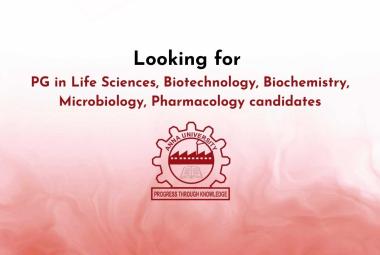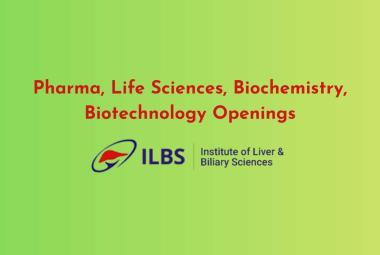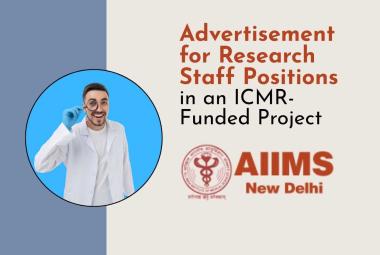{ DOWNLOAD AS PDF }
ABOUT AUTHORS:
1Department of Obstetrics and Gynaecological Nursing
2Department of Community Health Nursing,
KLE University Institute of Nursing Sciences,
Nehru Nagar, Belgaum
angadi.shweta@yahoo.com
ABSTRACT
When pregnant mother consumes drugs it reaches the fetus through the placenta, in the same way that oxygen & nutrients are delivered to the baby in the mother’s uterus. Depending upon the drug taken, the amount, duration & stage of pregnancy, it can produce varying effects on growing baby. Drugs can damage the fetus &cause developmental abnormalities (producing birth defects) & result in still birth. The objectives of the study were to assess the knowledge regarding teratogenic effect of drugs among staff nurse working in maternity and pediatric wards. Structured Knowledge Questionnaire on teratogenic effects of drugs was used to evaluate the knowledge of Staff Nurses. The results revealed that out of 30 staff nurses selected for the study, majority 19 (63.3%) possessed average knowledge regarding teratogenic effect of drugs.
[adsense:336x280:8701650588]
REFERENCE ID: PHARMATUTOR-ART-2287
|
PharmaTutor (ISSN: 2347 - 7881) Volume 2, Issue 12 How to cite this article: SA Angadi, SR Dandagi; Knowledge Regarding Teratogenic Effect of Drugs among Staff Nurses Working in Maternity and Paediartic Wards of K.L.E’s Dr. Prabhakar Kore Charitable Hospital, Belgaum, Karnataka; PharmaTutor; 2014; 2(12); 150-152 |
INTRODUCTION
In the past, people were not aware of teratogens or its effect on fetal development, due to lack of knowledge, lack of advanced studies, and technologies the infant morbidity and mortality rate are very high. Now we are in advanced technology in support, and health care delivery system accessible to all, we can be successful to prevent[1].
These days many women are aware of the side effects and contraindications associated with drugs during pregnancy, either prescribed or non-prescribed medicines and how it can affect their pregnancy adversely. However with the list of teratogenic substances growing, it is important to have a greater understanding of how the fetus may be affected rather than just avoiding specific drugs & related substances [2].
A baby is most likely to be born with birth defects if exposed to the harmful effects of drugs during the time when the organs are developing ,usually between the third and eight week of fertilization .This means that sometimes in very early pregnancy the fetus may be exposed to harmful substances without a women being aware that she is pregnant.Drugs taken after this period, although less likely to cause severe birth defects, may contribute to problems with growth & function of normally developed body parts[3].
Teratology is the study of abnormal developments in embryos and causes of genital malformations or birth defects. These anatomical or structural abnormalities are present at birth although they may not be diagnosed until later in life. They may be visible on the surface of the body. Congenital malformation account for approximately 20% of deaths in the perinatal periods. Approximately 3% of newborns infants will have major malformations and other 3% will have malformations defected later in life[2].
Recent health statistical report given by WHO birth defects are known to occur 2-3 per 100 of all new borns teratogens are leading cause of infant mortality. A recent survey done in India stated that more than 8-15% of congenital anomalies account infant death due to effect of teratogens. 7to 10 percentage wil require extensive medical care to diagnosis or treat birth defects. Although significant progess have be made in identifying teratogenics cause of some birth defects.[4]
[adsense:468x15:2204050025]
METHODOLOGY
Descriptive approach was used in the study. The study population consisted of staff nurses working in maternity and pediatric ward of KLE’s Dr. Prabhakar Kore Charitable Hospital, Belgaum Karnataka. Around 30 Staff Nurses were selected by a non-probability convenience sampling technique. Structured knowledge questionnaire on teratogenic effects of drugs was used to evaluate the Knowledge of staff nurses.
RESULTS
Section I: Findings related to socio-demographic variables.
|
Sl. No. |
Socio-demographic variables |
Frequency (f) |
Percentage (%) |
|
1. |
Age |
|
|
|
a. |
20-24 |
22 |
73.33 |
|
b. |
25-29 |
6 |
20 |
|
c. |
30-34 |
2 |
6.66 |
|
2 |
Sex |
|
|
|
a. |
Male |
7 |
23.33 |
|
b. |
Female |
23 |
76.66 |
|
3 |
Course |
|
|
|
a. |
GNM (Diploma in Nursing) |
27 |
90 |
|
b. |
B.Sc (N) Graduates |
3 |
10 |
|
4 |
Work Experience |
|
|
|
a. |
0-1 year |
17 |
56.66 |
|
b. |
2-3 years |
9 |
30 |
|
c. |
4-5 years |
0 |
0 |
|
d. |
6-7 years |
4 |
13.33 |
Section II: Findings related to Knowledge Scores Regarding Terratogenic Effects.

Graph revealed that majority of staff nurses 19 (63.33%) had average knowledge and the remaining 06 (20%)and 05(16.66%) had good and poor knowledge score respectively regarding terratogenic effects.
DISCUSSION & CONCLUSION
Most of the health care providers and mothers are unaware of adverse effects of teratogenic drugs taken during pregnancy, it is essential to educate the nurses to teach the pregnant womens and their family members regarding teratogenic effects of drugs in order to protect the growing fetus from the harm caused by them. The study finding can be used by the hospital administrators to convince the hospital staff and educate them so that they in-turn can educate the junior nurses working under them and the pregnant women to improve the knowledge regarding teratogenic effect of drugs and thus decrease the perinatal mortality rate.
REFERENCES
1. Need for study on teratogenic effects of drugs Available from URL: rguhs.ac.in/edc/onlineedc/uploads/05_N005_7496.doc.
2. How the teratogens affects the fetus Available from URL: teratogenic effects of drugs. phaa.com/drugs-that-can-affect-pregnancy-teratogenic-substances.htm
3. Teratogenic and their effects Available from URL: columbia.adu/itc/hs/medical/humandev/2004/chapt-23 teratogenic.pdf
4. A literature review on teratogenic effects of drugs, Available from URL: hdl.handle.net/123456789/9008
NOW YOU CAN ALSO PUBLISH YOUR ARTICLE ONLINE.
SUBMIT YOUR ARTICLE/PROJECT AT editor-in-chief@pharmatutor.org
Subscribe to Pharmatutor Alerts by Email
FIND OUT MORE ARTICLES AT OUR DATABASE









